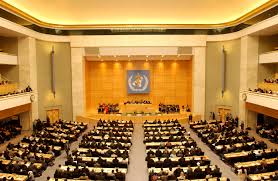By Asma’u Ahmad
The World Health Assembly (WHA) has said that air pollution causes about eight million global deaths annually.
An environmentalist, Mrs. Ezinwa Ezeka, told newsmen in Abuja that WHA has identified air pollution as one of the global largest environmental health risks in 2015.
Mrs. Ezeka said that Paris Agreement’s central aim was to strengthen the global response to the threat of air pollution and climate change.
She said that all parties who made the agreement are to put their best through National Determined Contributions (NDCs) and must strengthen these efforts in years ahead, adding that NDCs aimed was to address steps taken towards the adaption of climate change impacts and what support the country needs or could provide to tackle it.
According to her, governments are finding ways to ensure that promulgated laws are complied with and mechanisms are put in place in compliance with environmental laws.
She said that mode of transportation in Nigeria was largely by road, air, rail and water transport in the coastal areas.
“Due to poor economic disposition, majority of vehicles on our roads are second hand with poor engine performance imported into the country and these emit huge quantities of harmful pollutants.
“The reality today is that our transport system relies heavily on fossil fuel, with over 60 per cent of all goods and services conveyed by vehicles. Hardly can you let down your car window in a traffic jam without inhaling poisonous fumes from car exhausts,’’ she said.
Ezeka said that poor air quality has untoward environmental and human health causing diseases and promoting unhealthy environment.
The expert said solution to reduce air pollution was to conserve energy by switching off fans and lights when everyone has gone out.
According to her, large amount of fossil fuels are burnt to produce electricity, you can save environment from degradation by reducing the amount of fossil fuels to be burned.




